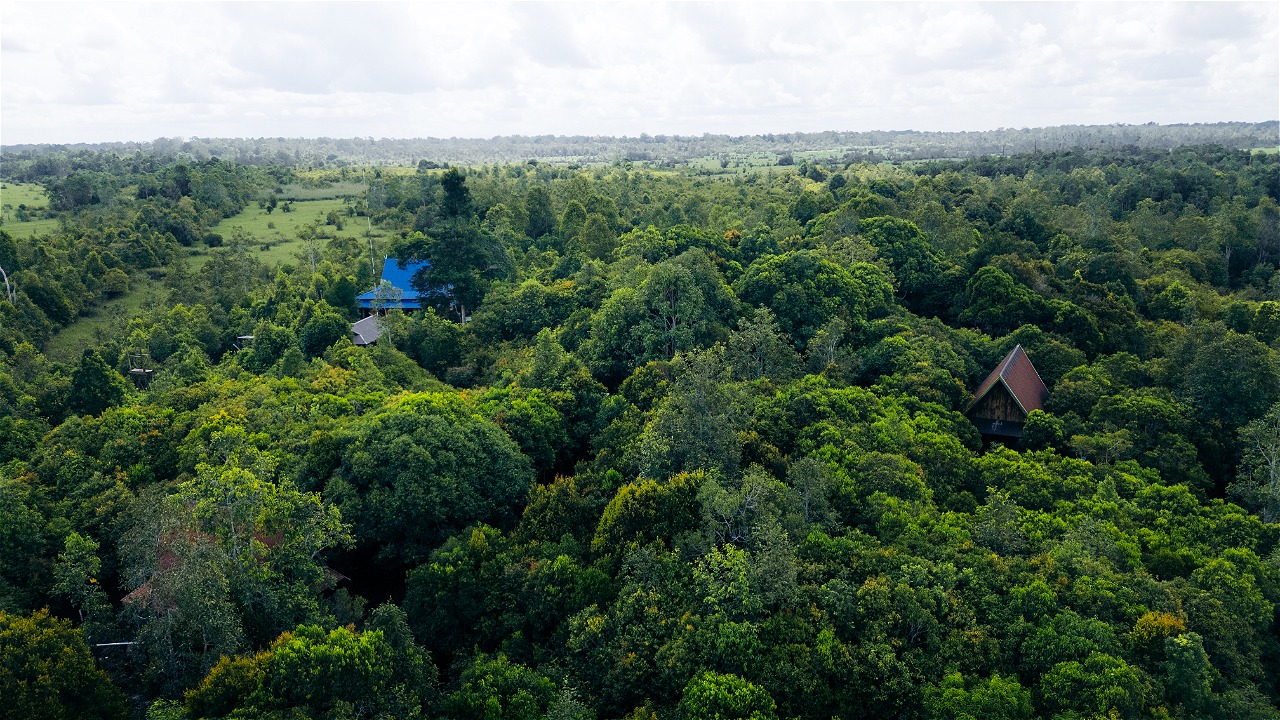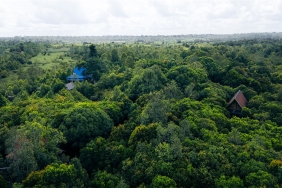HSBC SUPPORTS THE REALIZATION OF A SUSTAINABLE ECONOMY THROUGH ENVIRONMENTAL CONSERVATION
Collaborating with WWF-Indonesia, PT Bank HSBC Indonesia seeks to encourage industry and society to understand the importance of environmental conservation as a source of long-term prosperity.
Jakarta, September 29, 2017 - As part of its commitment to support Indonesia's economic growth, PT Bank HSBC Indonesia believes in the importance of environmental conservation. This is reflected in the various environmental conservation programs implemented with WWF-Indonesia for more than a decade, which touches on the economic, ecological and social welfare dimensions. HSBC sees the need to create a new paradigm in the business world in order to create a sustainable community economy.
Nuni Sutyoko, Head of Corporate Sustainability, PT Bank HSBC Indonesia, said, "After integrating into PT Bank HSBC Indonesia, we have a strategic role in contributing to Indonesian society more broadly. Our contribution aims to encourage business development while building the economic resilience of the community. This is what we call sustainability."
Nuni added, "Nowadays, we often get business people who put sustainability only as an additional aspect of their business. In fact, the aspects of sustainability and conservation are interrelated and are an important part of ensuring business sustainability in the future. In fact, by conserving the environment, we are also exposed to a variety of new economic opportunities such as agriculture or tourism, which have the potential to build prosperity in the long run."
Together with WWF-Indonesia, PT Bank HSBC Indonesia holds a series of sustainable environmental conservation programs in various parts of Indonesia - from Sumatra to Papua. These sustainable programs include fisheries cultivation programs in the world coral triangle; shark-whale monitoring, environmental education and sanitation programs in Cendrawasih Bay; clean water programs through the construction of information centers and freshwater laboratories in Rimbang Baling, Riau; waste management and sanitation programs in Cendrawasih Bay and Labuan Bajo; sustainable oil palm farming programs in West Kalimantan; and environmentally sound marine tourism programs in Eastern Indonesia.
Arnold Sitompul, Conservation Director of WWF-Indonesia, said, "Conservation success can only be achieved by ensuring the economic sustainability of the community. We try to realize this through the application of sustainable use principles in various sectors, including the oil palm plantation, fisheries and tourism sectors. Partnerships with financial and banking institutions, such as with HSBC, are one form of strategic partnership to ensure that the implementation of sustainable use can go hand in hand with the growth of the community's economy."
The Rimbang Baling community is an example of a community that has a high awareness in protecting the environment. With the support of WWF and HSBC, the community began to feel the benefits of protecting the river and practicing ecotourism for their economy, and abandoned the practice of forest encroachment. Similar cultural reforms have also begun to build strongly on the development program for oil palm farmers in West Kalimantan who can carry out optimal productivity for business development without having to destroy forests.
"We hope that the various conservation programs run together can prove and inspire business people everywhere that sustainability is an important factor in realizing a sustainable business," concluded Nuni.





